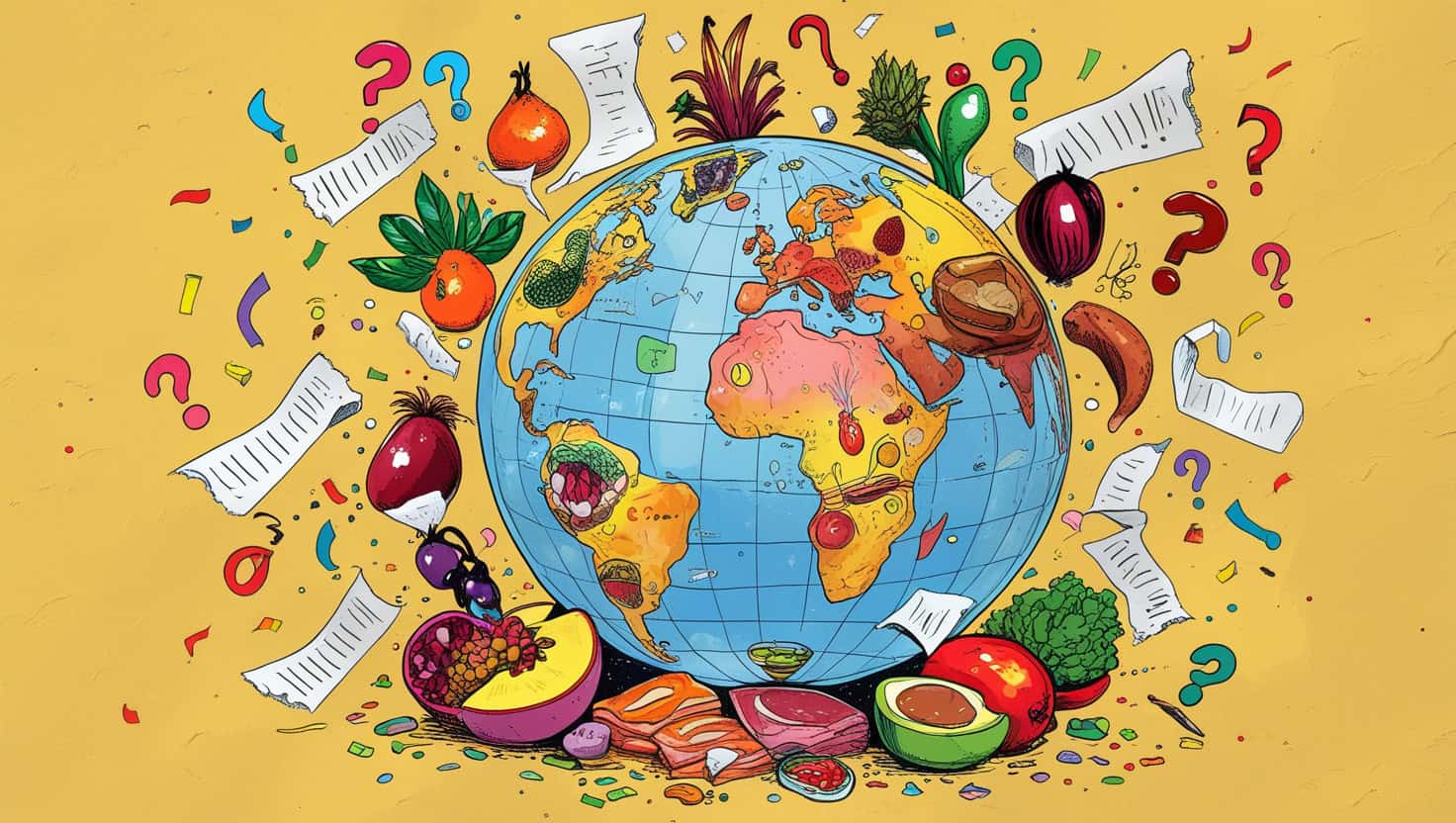Food brings people together, but not every country plays by the same rules—especially when it comes to how, what, and where you eat. Around the world, a few food-related rules and customs are so quirky, they might surprise you. Let’s explore some of the weirdest food laws (and cultural rules) that are still relevant.
1. No Chewing Gum Sales in Singapore
Singapore is famous for its cleanliness—and for its ban on chewing gum sales and imports. This rule began in 1992 to prevent sticky messes on public property and to protect its MRT train system. Today, chewing gum is still largely banned, except for medicinal or therapeutic gum sold through pharmacies.
You can chew gum if you bring it yourself, but selling or importing it without a license? That can lead to a big fine.
2. Ketchup Restrictions in French School Cafeterias
Contrary to popular belief, ketchup isn’t totally banned in France. However, it is limited in school cafeterias, where French food traditions are taken seriously. The goal is to teach children to enjoy authentic French cuisine and healthier meals.
Condiments like ketchup, mayonnaise, and vinaigrette are served in controlled portions, usually only with specific dishes like fries.
3. No Frowning While Eating in Milan? Not Quite
You may have heard that it’s illegal to frown while eating in Milan, Italy. While it sounds like something from a comedy film, there’s no real law that enforces this rule.
Still, the idea promotes a positive attitude toward food and social dining—but don’t worry, your facial expressions won’t get you fined in Milan.
4. The Mustard “Ban” in Clermont-Ferrand, France
Some sources claim there’s a ban on mustard in the town of Clermont-Ferrand, due to an old dispute between local chefs and mustard makers. However, there is no legal ban in place today.
This tale seems to be more myth than fact—though it does make for an amusing example of how food traditions can be wrapped in legend.
5. No Eating on Public Transport in Japan
In Japan, etiquette is everything—especially on public transport. While it’s not an official law, eating on local trains and buses is strongly discouraged. Signs and announcements often remind passengers to avoid eating, as smells or crumbs can bother others.
On the other hand, long-distance trains like the shinkansen often sell snacks and bento boxes onboard, where eating is perfectly acceptable.
6. The Hot Dog Ban Myth in U.S. Cities
Some cities in the U.S., such as Baltimore, once had strict licensing laws that affected street food vendors, including those selling hot dogs. These weren’t hot dog-specific bans, but general restrictions related to health codes and vending permits.
Today, most of these laws have been relaxed, though street vending still varies by city. So yes, you can still grab a hot dog from a cart in most major towns!
What These Laws Say About Us
From strict gum rules in Singapore to ketchup limits in France, these food laws show how culture, health, and even history shape what ends up on our plates—or doesn’t. Some are designed to protect tradition, others to keep public spaces clean or promote polite behavior.
In the end, these unusual rules remind us that food isn’t just about eating. It’s about values, customs, and community.
What Do You Think?
- Have you ever encountered a strange food rule while traveling?
- Which of these food laws surprised you the most?
- Do you think food laws like these help preserve culture—or just add unnecessary rules?
Drop your thoughts in the comments! We’d love to hear your weird food law stories too.
By the way, you can discover even more fascinating food facts in our BeClever app, free to download on iOS and Android.


Leave a Reply